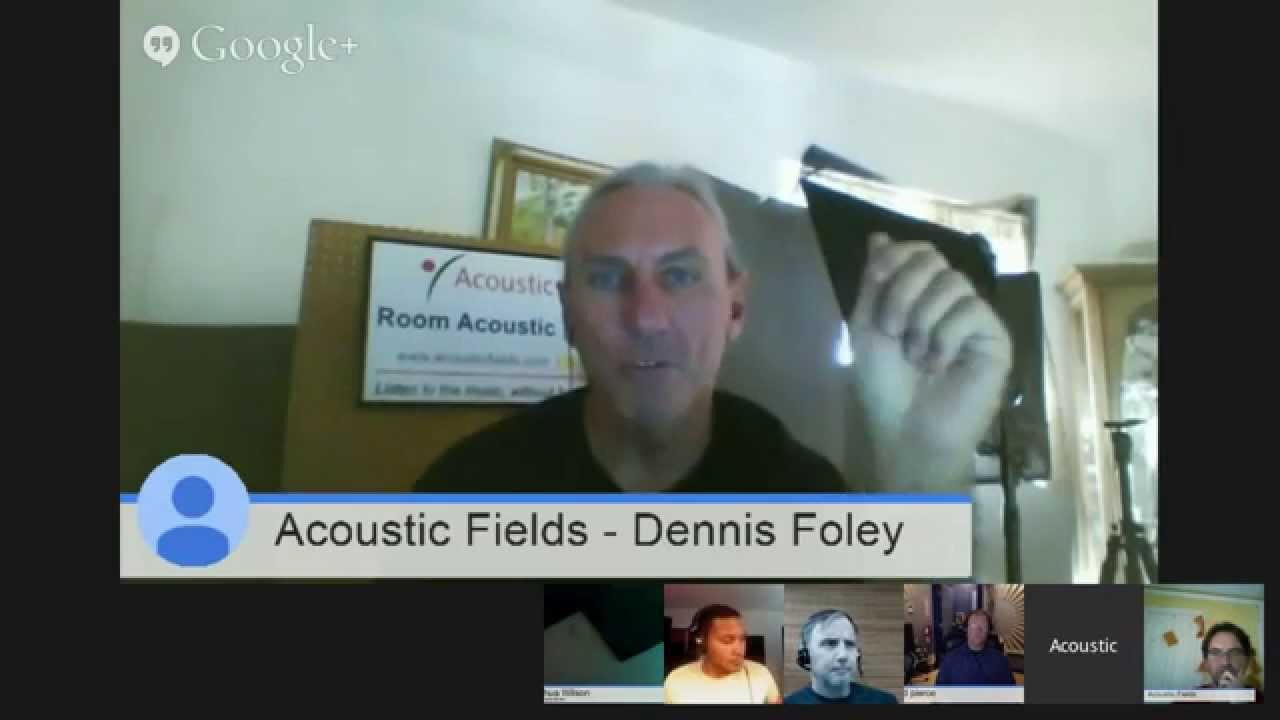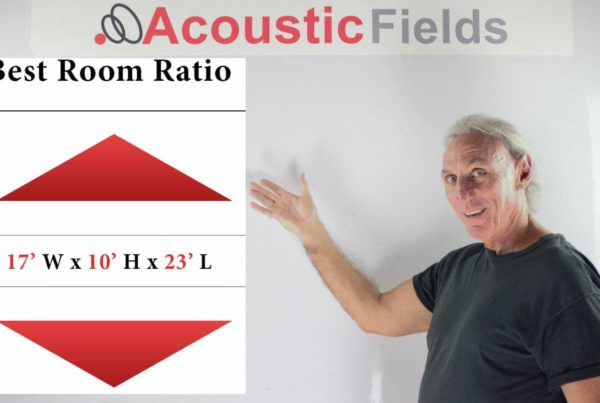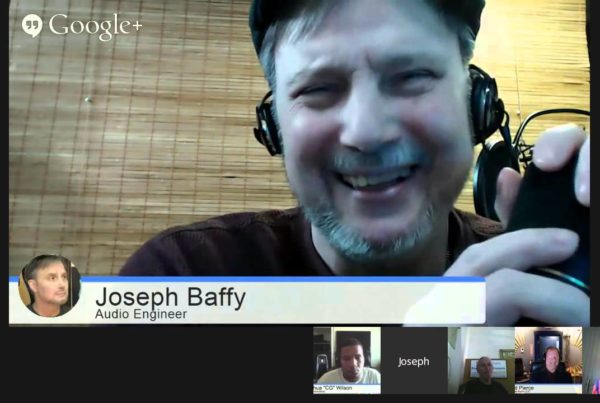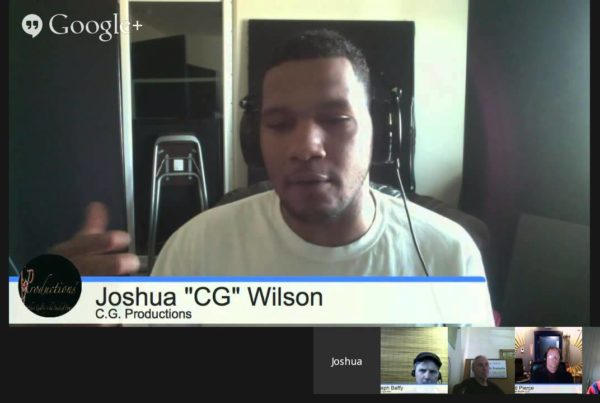In a recent Google Hangout I got together a bunch of experienced and talented audio engineers to help bridge the gap between what you are hearing as an engineer and how the room is causing that problem. We tried to cut through some of the confusion between “mix sound” and “room sound”. The following video and transcript comes from one particular section where we addressed the issue “Why level and EQ in mixing are so important in both room acoustics and mixing”. If you would like to see the full hour and a half discussion you can see the video further down the page.
Dennis Foley (DF): Of all the controls that you guys use on the console which is the control you go to the most?
Joseph Baffy (JB): It’s fader, it’s the volume.
Brad Pierce (BP): I would say between yeah level and EQ.
Joshua Wilson (JW): The frequency balance. Yeah same thing like I mean ‘cause you always kind of, that’s kind of where you taught to level things and then start the EQ first and stuff like that.
JB: My first move is always level and pan that’s the basic where I get my static mix first.
DF: And level and EQ are the first things I look at in a room.
JB: Yes, okay well that’s a nice parallel
DF: Yeah I think there’s something to be said for that too. Because level creates pressure. You know so and EQ you know creates balance. So the Steely Dan Recordings that Brad is referring to are really well balanced, they’re very clean, articulate and nice and even and smooth. To me they sound a bit processed but that’s just personal preference on my part. Technically you know they’re a beautiful recording.
BP: Processed in what way though Dennis? What makes it processed? In what way you mean processed?
DF: Everything is perfect, every instrument, every vocal and it’s the same on every track which is good, which is good and it’s consistent and it’s reliable and it’s predictable and you can hear everything. And when you have a room that’s as sensitive to mine as it is, it’s nice to hear. However take the other side of the equation and take a live recording you can get the same kind of feeling and interest level with a live recording if it’s done correctly and those are kind of two ends of the spectrum.
I’m just, I’m trying to figure out how we take all of these differences in recording that I hear every day and make it easy for people to understand those differences and how important the room is and I just, I’m not coming up with an answer for everyone yet and I don’t know what that answer is, maybe there isn’t any.
AD: From a layman’s terms as far as my experience obviously I used to play music, record music but I never got to anywhere any of your guys’ levels. My recording went as far as I just wanted to capture what I was playing and so I would take some headphones and I’d get the mix perfect on the headphones, play it out, I couldn’t play to anybody else. I first got into this whole room acoustics equation because it was kind of like the feeling that you get, you know the feeling that you’ve won and yet somehow when you just use, based in it on the room you couldn’t get it. I don’t know if I’m explaining that right either but you know in Dennis’ studio you just get that connection that it’s the same when you start writing a song and you start jumping between different chords and you just start getting that feeling going that’s as close as I can say to it. That’s what it’s like to listen in that studio when you take the room away. You know when you have that, Joshua was saying it, when you’ve got that emotional connection you don’t think, you just feel.
JB: Yeah you’re so immersed into the sound.
AD: Yeah.
JB: There’s nothing else in your environment, you just absolutely are immerse into the vibration.
AD:Yeah exactly. That’s the difficult to explain to people because you know that’s emotion.
JW: I think what we’re doing is like we’re looking, you know we’re doing people who would want to get to a different level with mixing and you know more professional level with mixing because the thing is it’s like, like I said people in the audio you know field we’re kind of like naturally kind of cocky you know I mean like we like what we like and we don’t change it for nobody, you know what I mean. So you have to and it’s just like I said you have to want better to be better, like me I, from the beginning I started on like a little stereo like a little PC mic you know like a broken up headphone that I made into a microphone and like I knew then you know that I didn’t want that it didn’t sound like what the radio sounded like and it’s taking me like a lot of years to start on an album.
Because I wanted my, you know that’s the sound I was searching for and like I was like so aggressive on it that like you know that was my goal and that’s how my slogan came up, “Quality is the sound of progression”. So like I mean quality is the sound of progress so basically as my quality got you know got better that that kind of like said you know how I’m moving along you know and the things is you know it took me, it’s been a decade and I started on an album and then well that kind of died when my hard drive died but you know I’m just saying like I took that long to get to this point. So like we’re looking at kind of I think a narrow field of people who want to have better because I don’t think a lot of people will take ten years to record their first album you know just, you know I mean so.







